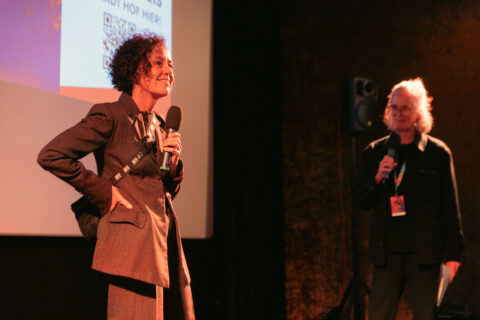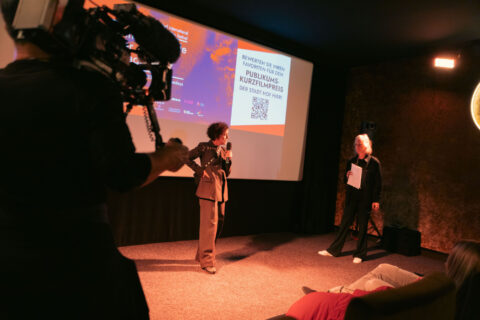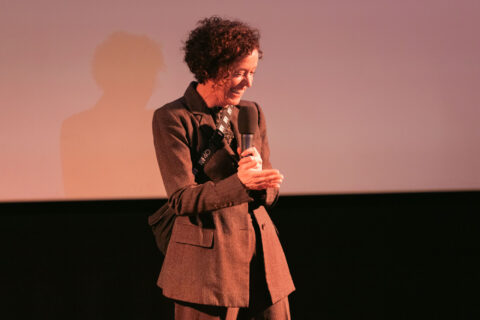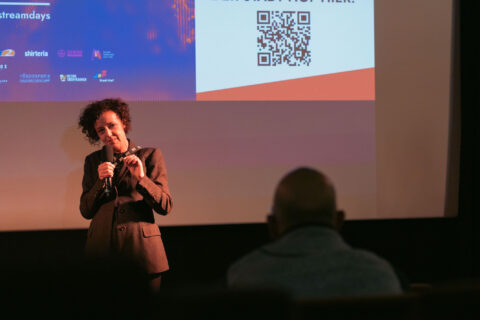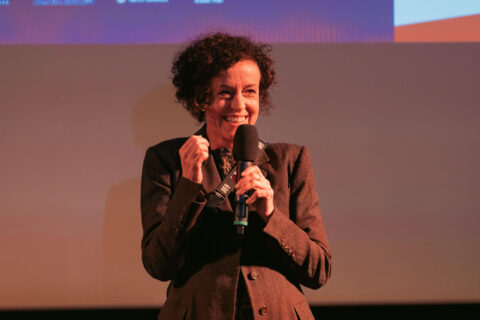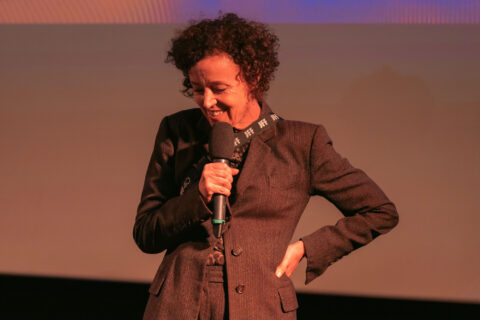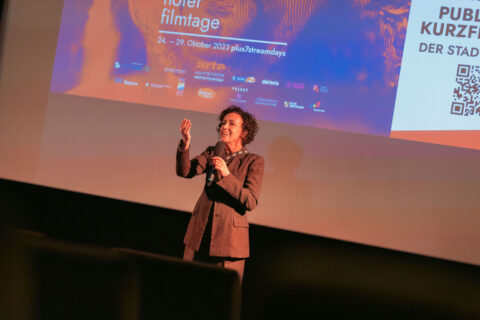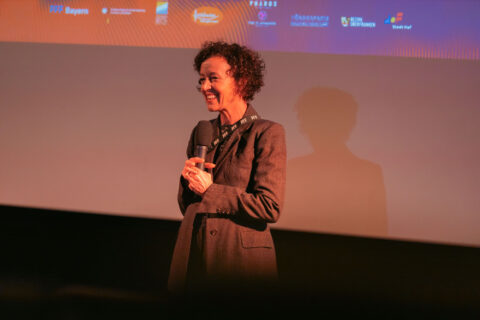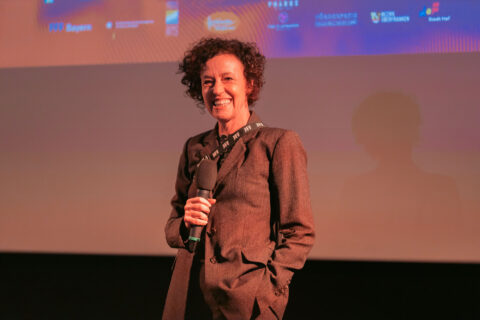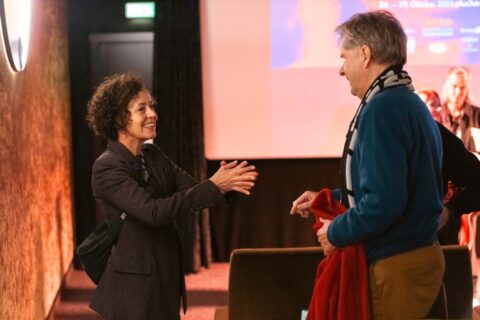Vergiss mein ich
Lena Ferben has been married to her husband Tore for years when she suddenly loses herself. Doctors call Lena’s condition retrograde amnesia, the reason being undiagnosed inflammation of the brain. As a result, she can no longer access what medicine calls biographical memory. And how strangely the brain works: The language is still there, but the words are not linked to any experience. Comedy... fidelity... sex... love... husband...
Words floating in a vacuum, cut off from their basic meanings. Tore tries to help Lena find a way back to what he was to her and she to him: a retelling of a reality already experienced. But while those around her feel only the loss of the old Lena, she herself follows a path of her own. What is it like to be this Lena Ferben? Lena tries out the role like an actor, while something new emerges from within, an individual personality that resists doing what Lena’s environment is encouraging and urging her to do—to become herself.
Cast
- Lena
- Maria Schrader
- Tore
- Johannes Krisch
- Sandra Hüller
- Ronald Zehrfeld
- Prediger
- Stefan Lampadius
- Ehefrau
- Nadine Petry
- Stefan Berliner
- Peter Prager
- Anne
- Judith Wolf
- Simon
- Jeffrey Zach
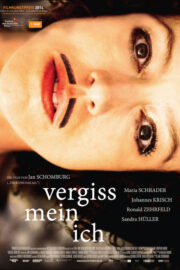
Vergiss mein ich
Jan Schomburg
- Fiction
- Production Country / Year
- Germany 2014
- Language
- dt. OF ohne UT
- Format
- DCP, Color, 93min
1.85:1, Discrete 5.1
Director & Crew
Jan Schomburg
Born in 1976 in Aachen. Studied Visual Communication at Kassel Academy and Audiovisual Media at Art Academy for Media Cologne. Graduated from the Scriptwriting Workshop Munich, scholarship for the Andrzej Wajda Master School of Directing in Warsaw. Active as a director, scriptwriter and writer.
Filmography
| 2001 | Turnverein | Kurzfilm | |
| 2004 | Nie solo sein | Kurzfilm | |
| 2005 | Esther | Kurzfilm | |
| 2007 | Innere Werte | Fernsehfilm | |
| 2011 | Über uns das All | Spielfilm | |
| 2014 | Vergiss mein ich | Spielfilm | 2023 |
| 2015 | Ein Mord mit Aussicht | Spielfilm | |
| 2020 | Der göttliche andere | Spielfilm |
“Lena cannot take anything for granted anymore, and precisely this is the opportunity her situation offers. The film focuses less on a case of illness than on the question of what identity is. Can the self be recreated or reconstructed or perhaps even abolished? Lena discovers her old diaries, which she explores in wonder; she disguises herself, develops a taste that alienates her husband, and searches for an echo within, for real experiences. Already, this is comparable to acting. But it remains a game, an agreement between the people on the screen and those in the audience – wanting to forget that this is acting. With Lena, it goes even further: I play a character who is trying to act out something.”
Maria Schrader
- Make-up
- Astrid Weber
- Martina Ostländer
- Music Composer
- Christopher Bremus
- Stefan Schwalbe
- Tobias Wagner
- Producer
- Claudia Steffen
- Christoph Friedel
- Production Designer
- Cora Pratz
- Writer
- Jan Schomburg
- Sound
- William Franck
- Editor
- Bernd Euscher
- Casting Director
- Regina Tiefenthaller
- Director of Photography
- Marc Comes
